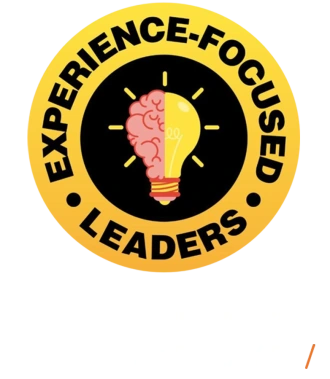Listen to the Podcast Episode on Your Favorite Platform

.svg.png)

Breaking the Funnel: How to Build Real Customer Relationships with Georgiana Laudi
.png)
We find the funnel to be a sort of lazy way of thinking about customers, and it's also problematic—especially now. When we think of our relationships with customers in this flattened, simplistic, and generic way like a funnel, we lose all kinds of opportunities to create better experiences, deliver more value, and increase conversions overall. (Georgiana Laudi)
(00:00-07:45)
Alex shares his discomfort with the term "lead" and how funnel-based thinking reduces people to mere transactions. Georgiana agrees, calling the funnel a "lazy way of thinking" about customers. She argues that the funnel flattens the customer experience into simplistic stages, which don’t reflect the complexities of real relationships, especially in businesses where customer retention is as important as acquisition.
Georgiana explains why the funnel model is a poor fit for SaaS and other recurring revenue businesses. In these models, the customer journey doesn’t end when a purchase is made—in fact, that’s just the beginning. Recurring revenue companies need to focus not only on acquiring customers but also on continually delivering value to keep them happy and engaged over time. The funnel, which traditionally focuses on moving customers through a linear process, overlooks this ongoing relationship.
One of Georgiana’s key criticisms of the funnel is its failure to account for the broader context in which customers make decisions. For instance, she explains that customers are often already dealing with the problem you solve before they even know your brand exists. Ignoring this context means missing opportunities to create more relevant and impactful marketing. She shares an example of working with a client whose customers often searched for an invoicing tool while sitting in their vehicles on job sites. Understanding this scenario helped the company design a better experience tailored to the customer’s real-world needs.
Alex builds on this by comparing the real B2B buyer journey to “quantum physics,” where customers bounce around through different stages and needs rather than moving forward in a straight line. In complex buying scenarios, especially enterprise sales, there are multiple stakeholders involved, each with their own requirements and pain points. Alex points out how unrealistic it is to assume a single, smooth journey for every buyer, and he emphasizes the need for flexibility in allowing customers to self-identify where they are in their own process.
Georgiana and Alex also discuss the limitations of common marketing tools like personas and journey maps. While these tools can be helpful starting points, they can oversimplify human behavior and remove the empathy from customer interactions. For example, sales teams often rely on terms like "suspect" or "prospect," which, while useful for organizing leads, dehumanize the buyer. Alex suggests that these labels can erode trust when we start treating people like points on a chart rather than humans with real problems and goals.
.png)
Capturing Attention in a Busy B2B World: Marketing Strategies for the Modern Buyer
.png)
That’s actually where Forget the Funnel came from—the misalignment between marketing and tech, and the misunderstanding between leadership teams and marketing. Everybody thinks they’re a marketing expert because everyone is marketed to, so there are lots of opinions flying around. (Georgiana Laudi)
(07:45-17:09)
Georgiana explains how companies often think about customers through the lens of what they’re worth to the business, rather than the value the business delivers to them. She believes this transactional mindset leads to a poor customer experience. Instead of focusing on "leads" and "prospects," Georgiana emphasizes looking at how well companies help customers achieve meaningful milestones in their journey—what Forget the Funnel calls "value promise" and "value realization."
Alex points out that top sales teams focus on customer value rather than just closing deals. He shares how some companies produce annual reports showcasing the real value they've delivered to clients, calling this "real marketing." Georgiana agrees, adding that many marketing teams get stuck producing overhyped case studies that don't resonate with customers.
Georgiana highlights how product marketing is often undervalued or misunderstood within many SaaS and tech companies. Product marketing teams are meant to deeply understand customers and create strategies that connect their needs to the product. Unfortunately, many marketing teams are forced to focus on lead generation instead of building strong foundations, leading to ineffective results and wasted effort.
Georgiana touches on a common issue in tech companies: marketers are often underpaid, undervalued, and disconnected from leadership. This leads to misaligned expectations, with marketing teams scrambling to meet unreasonable lead targets, which only worsens as layoffs and job pressures mount.
.png)

Why Marketing Misses the Mark: Lessons in Customer-Centric Strategy
(17:09-23:10)
Alex points out that marketing skills are no longer confined to marketing departments. In today’s business environment, everyone—from salespeople to HR professionals—needs to adopt a marketing mindset. He argues that in the future, the best sales reps will think more like marketers, using the same communication and customer empathy skills.
However, the speakers agree that many marketers fall into traps, particularly with demand generation. For example, top-of-the-funnel efforts often focus on driving leads at a high volume, but the quality is questionable. This approach results in pseudo marketing-qualified leads (MQLs) and sales-qualified leads (SQLs), which are numbers-driven rather than relationship-driven. This tactic leads to overwhelming customers with spammy, impersonal content and making a weak first impression.
The conversation turns toward content marketing, where Alex critiques the growing tendency for teams to churn out poor-quality content just to keep up with SEO demands or feed the demand gen machine. This “volume over value” mindset leads to repetitive, impersonal content that lacks substance. Georgiana agrees, noting that no one in many organizations is taking a high-level, holistic view of the entire customer experience. She argues that content spans the entire customer journey, from awareness to growth, and it’s a mistake to reduce content to just another marketing task.
Georgiana highlights how product marketing, when leveraged correctly, can help align different parts of the marketing function—awareness, demand generation, and content marketing—while keeping the customer’s experience at the center. She stresses the need for marketers to take a step back and see the big picture: Who is the customer? What problem are they solving? And how does their interaction with the product evolve over time?
Georgiana walks through the customer journey, describing how the right approach can help guide a customer from first discovering a product to realizing its value. The journey starts when a potential customer encounters a problem that needs solving. They find your company and begin evaluating whether your product can meet their needs. Through this evaluation, customers identify deal breakers and bring in other stakeholders, especially in a B2B context, to make the final decision.
Once customers decide your product solves their problem, they enter the value realization phase, where they start seeing tangible benefits from using your product. If their experience is positive, they move into a growth phase where their usage of the product deepens, and they may become advocates, referring others to your business.
.png)
From Product to Customer: Redefining the Role of Product Marketers
.png)
I’m not saying that a product marketer is responsible for executing and implementing the strategy for the end-to-end customer experience. What I’m saying is that product marketing is responsible for learning what the customer needs, getting intimately familiar with the ideal customer and their needs, the milestones, the major decision-making points, and the critical leaps of faith that your customer takes in their relationship with you. (Georgiana Laudi)
(23:10-30:01)
Alex shares his own experience as a former consultant who, despite a strong background, found himself gravitating towards focusing on product features and demos. He points out that many product marketers get stuck in the technicalities of the product itself, especially when working with sales teams. In larger enterprises, the tendency is to view product marketers as support for sales rather than as strategic leaders focused on customer needs. Alex questions whether there's a new wave of product marketers that go beyond this narrow role.
Georgiana responds by highlighting the often misunderstood and underutilized role of product marketing. For her, product marketing should be about deeply understanding customers—their needs, decision points, and "leaps of faith"—and translating this knowledge to guide teams across marketing, sales, and product development. She introduces the concept of the customer-led growth framework, where jobs-to-be-done research helps product marketers map out key moments in the customer journey. This includes understanding what customers are thinking, feeling, and doing at different points, allowing teams to reverse-engineer the ideal customer experience.
Alex notes that while the work Georgiana describes feels more aligned with customer experience leadership, it often requires buy-in from senior executives to implement effectively, especially in larger companies. Georgiana agrees, emphasizing that without executive sponsorship, it’s difficult to align all the necessary departments. However, she points out that in smaller companies, product marketers or other team members—regardless of their title—can lead this customer experience work without needing extensive resources.
.png)

The Right Content at the Right Time: Elevating Customer Experience Across Sales and Product-Led Models
.png)
The title isn’t important. It’s about whether someone is thinking about the customer experience holistically and is responsible for understanding what customers—and ideal customers—need. That’s really important. Not all customers are created equally. We need to think about segmentation and how to get that intel back to the rest of the teams. Somebody has to be responsible for doing that. Whether you call that person the head of customer experience or the head of product marketing really doesn’t matter. (Georgiana Laudi)
(30:01-39:58)
Georgiana addresses a common misconception: job titles aren’t what matter—what matters is someone taking responsibility for truly understanding customer needs and how those insights feed back into the rest of the organization. Whether a company calls this person the Head of Product Marketing or the Head of Customer Experience, the essential role is someone who segments the customer base, understands what ideal customers need, and ensures the company’s offerings meet those expectations.
In many sales-led organizations, product marketers are often tasked with producing sales collateral, which Georgiana argues underutilizes their potential. Instead, product marketers should be conducting deep customer research, identifying unique value propositions, and working across teams to create holistic customer experiences. They are the ones who can connect the dots between market trends, customer insights, and company positioning to make the customer journey smoother and more compelling.
Alex shifts the conversation toward the role of content in the customer journey. He references research from Gartner, noting that 80% of a buyer’s journey is completed before they ever engage with a sales team. The question becomes: how can content drive this journey effectively? Alex asks Georgiana to share her insights on where companies often fall short with their content strategy.
Georgiana identifies three primary organizational models—product-led, sales-led, and product-led sales—each of which requires a different content approach.
Product-Led Sales: Georgiana explains that in product-led sales, content plays a vital role at the awareness stage but becomes less important as buyers move into the evaluation phase. In these models, the product needs to speak for itself, allowing users to explore the product (e.g., through trial accounts or sandbox environments) and self-qualify before engaging with sales. However, she stresses the importance of re-engaging users—via email or other communication channels—because a large percentage of users might get distracted and never return to the product after their first interaction.
Sales-Led Organizations: In sales-led environments, content takes on a different role. Georgiana describes how these companies should leverage programmatic communications to re-engage users during the evaluation process. However, she cautions that programmatic communication must be more than just swapping in a buyer’s name or title—it needs to feel personalized and segmented appropriately to the buyer's needs. While sales teams focus on one-to-one interactions, there’s an opportunity for marketers to use content and automation to enhance the overall experience, aligning it with the buyer’s journey without overwhelming them.
The speakers agree that balancing content across different types of buyers—whether technical, business-oriented, or in between—is critical. Alex brings up the example of cybersecurity buyers, who often prefer self-service over sales-led interactions. These buyers want high-quality, in-depth content they can consume on their own time, avoiding sales meetings whenever possible.
Georgiana echoes this, noting that companies need to meet buyers where they are in the journey, providing the right amount of information without bombarding them with content. The goal should be to offer a "sales meeting quality" experience through content that’s easily accessible on the buyer’s terms.
As the conversation progresses, they discuss how post-onboarding content is frequently overlooked. Many companies stop investing in content after a customer is acquired, missing a huge opportunity to drive continued engagement, expand value, and support upselling efforts. Georgiana points out that content marketing has a vital role to play in helping customers realize the full value of the product post-acquisition.
Georgiana talks about finding the right balance between personalization and automation, especially as AI becomes more integrated into communication strategies. She suggests that the future lies in combining these two elements in ways that don’t feel robotic or impersonal, allowing companies to maintain customer centricity while scaling efficiently.
For those wanting to dive deeper, Georgiana invites listeners to check out her book, Forget the Funnel, a practical guide to building better customer experiences through smarter content strategies. The book includes a framework that companies can use to optimize their marketing and customer experience processes, along with a workbook for hands-on application.
.png)
Check the episode's Transcript (AI-generated) HERE.
Other Episodes

Godard Abel | CEO of G2
S 01 | Ep 6 Where You Go for Software: Reach Your Peak


Dean Stocker | CEO of Alteryx
S 01 | Ep 8 Turning Your Customers Into Your Biggest Champions


Peter Fader | Co-Founder of ThetaCLV
S 01 | Ep 10 Turning Your Marketing Into Dollars

Author

Experience-focused Leaders is the #1 Multimedia Podcast! We talk to senior business & tech leaders about the experiences that move forward organizations, customers and society at large. True to form, we mix audio, video, web and eBook formats to turn these authentic conversations into personalized nuggets you'll remember & use.



.png)
